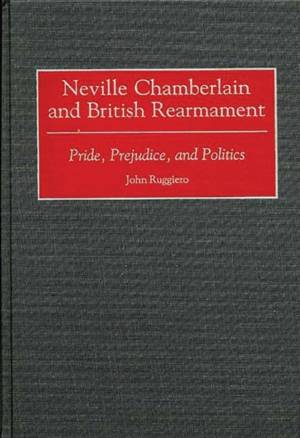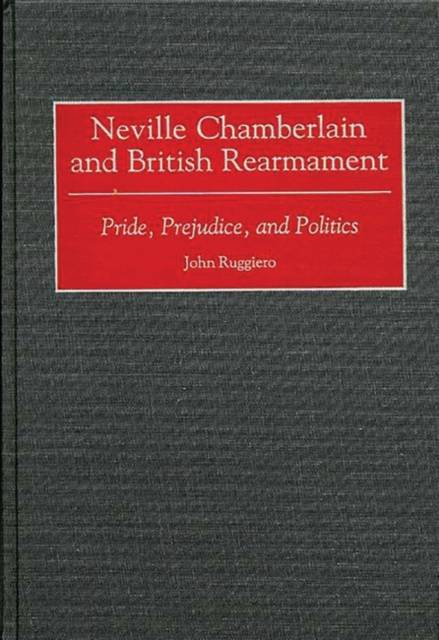
- Retrait gratuit dans votre magasin Club
- 7.000.000 titres dans notre catalogue
- Payer en toute sécurité
- Toujours un magasin près de chez vous
- Retrait gratuit dans votre magasin Club
- 7.000.0000 titres dans notre catalogue
- Payer en toute sécurité
- Toujours un magasin près de chez vous
Description
A reexamination of Neville Chamberlain's appeasement policy, this study challenges prevailing images of Chamberlain as a tragic hero--a man of peace, naively impressed by the dictators, who did his best under difficult circumstances to prepare his country for war. Instead, the author suggests that Chamberlain dominated his government and demonstrated an uncanny ability to manipulate those around him in support of his own personal vision of Britain's national interest. The failure to rearm to a level consistent with imperial obligations presented a formidable problem. The British Government admittedly had no good option available to it; however, Chamberlain was prepared to endure the humiliating consequences of appeasement, even if it meant peace at any price. He did so for personal, political, and prejudicial reasons.
Ruggiero argues that, without Chamberlain, British rearmament would have taken a new direction, and such action might have prevented World War II. Relying primarily upon the Chamberlain Papers and Cabinet Records, this account details how and why Chamberlain adopted his chosen course of action, even after all support for his policies fell away as a result of the Munich Crisis. Most studies have concentrated directly on Chamberlain's appeasement policy, and this is the only one that analyzes his role in the rearmament program at length. It also sheds new light on appeasement by illustrating the connection between the policy and Britain's attempts to rearm.Spécifications
Parties prenantes
- Auteur(s) :
- Editeur:
Contenu
- Nombre de pages :
- 272
- Langue:
- Anglais
- Collection :
- Tome:
- n° 71
Caractéristiques
- EAN:
- 9780313310508
- Date de parution :
- 30-11-99
- Format:
- Livre relié
- Format numérique:
- Genaaid
- Dimensions :
- 156 mm x 247 mm
- Poids :
- 603 g

Les avis
Nous publions uniquement les avis qui respectent les conditions requises. Consultez nos conditions pour les avis.






